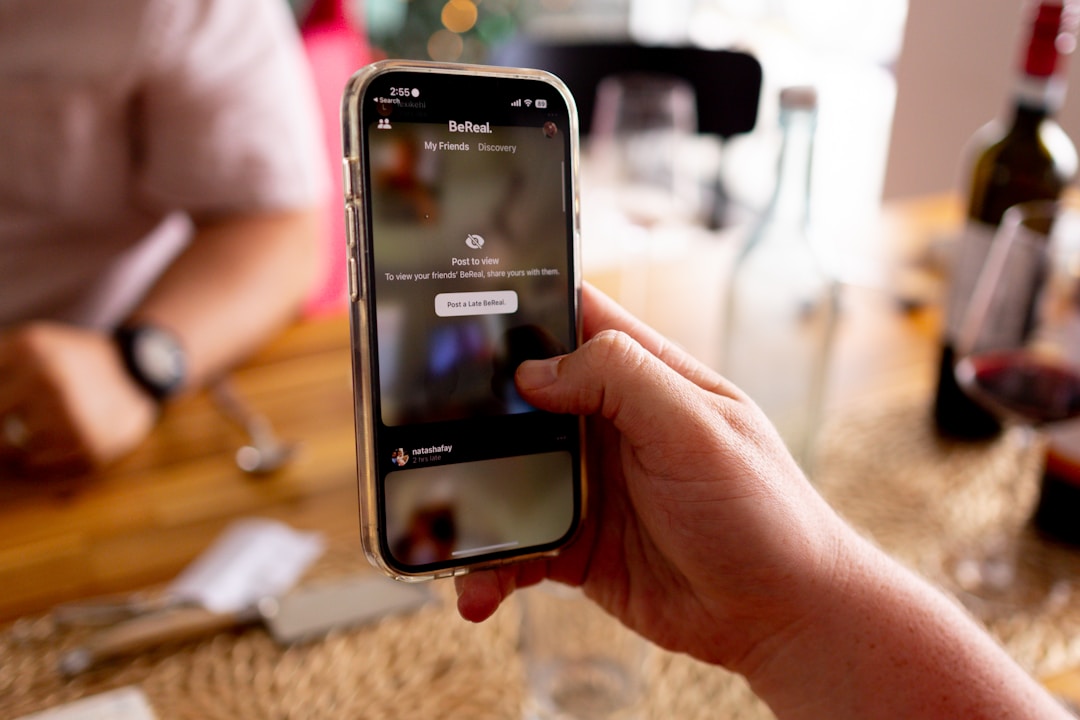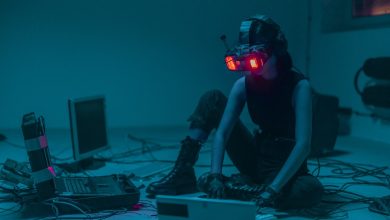
Have you taken the time today to scroll through your friends’ posts on Facebook or share some adorable photos of your pet on Instagram? You may have been busy checking notifications on various social media platforms or a Twitter link directed to you here.
Regardless of how you’ve spent your time on your phone or computer today, social media is highly likely to have played a significant role.
Studies consistently reveal that platforms like Twitter and Instagram can have profound impacts on your mental health. Indeed, excessive use of social media has been shown to deteriorate mental well-being potentially.
Despite the rapid rise and widespread adoption of new social media platforms, which have seamlessly integrated into nearly every facet of our daily lives, there remains a surprising lack of in-depth knowledge regarding how these platforms influence our personalities, behaviors, social interactions, and mental health.
Many research efforts have sought to understand these impacts, yet often, the outcomes of such studies have been inconclusive or unsatisfactory. Research has associated frequent social media use with various adverse consequences, including depression, anxiety, poor sleep quality, low self-esteem, and attention and hyperactivity disorders. However, it’s important to note that most of these studies are observational or correlational, which means they don’t definitively prove causation between social media use and these mental health issues.
A common counterargument to the suggestion that social media usage directly contributes to increased depression and loneliness is the possibility that individuals who are already feeling lonely or depressed might be more inclined to engage in social media activities as a means of seeking connection with others. This perspective highlights the complexity of determining the exact effects of social media on mental health.
Do social networks cause depression?
Recent studies have provided strong evidence of a causal relationship between social media use and its adverse effects on mental health, particularly depression and loneliness. This significant finding was detailed in a Journal of Social and Clinical Psychology publication.
“Overall, what we found is that reducing social media use results in lower levels of depression and loneliness,” explained Jordyn Young, a senior professor at the University of Pennsylvania and one of the study’s authors. “Limiting social media use brings about substantial improvements in mental health.”
Before this study, researchers could only point to an association between social media use and mental health issues without establishing a clear cause-and-effect relationship. However, the research team has now employed scientific methods to establish this causal link for the first time in social media studies.
The study involved 143 students from the University of Pennsylvania. The participants were randomly divided into two groups: one that continued with their usual social media habits and another that restricted their social media usage.
Over three weeks, the experimental group was limited to 30 minutes of social media per day, distributed in three 10-minute intervals across Facebook, Instagram, and Snapchat. To ensure accurate tracking, the researchers monitored the participants’ mobile phone usage data to measure how long each app was accessed daily. For consistency, all participants used iPhones.
The researchers chose not to impose a complete social media ban. “Total avoidance of social media wouldn’t reflect the world we live in today,” the researchers noted. They believed limited use would more accurately represent current realities where social media is pervasive.
The results were striking: those with reduced social media access experienced significant improvements in their mental health. At the beginning of the study, participants underwent psychological assessments in various areas, including social support, fear of missing out, loneliness, anxiety, depression, self-esteem, autonomy, and self-acceptance.
By the end of the experiment, those in the restricted-use group reported feeling less lonely and showed reduced symptoms of depression. These positive changes were most pronounced among participants who had reported high levels of depression initially.
Young emphasized that regardless of initial levels of depression or loneliness, reducing social media use resulted in noticeable improvements within weeks. “No matter the starting point, limiting social media helps alleviate symptoms of depression and loneliness,” she added.
Interestingly, both groups experienced reductions in anxiety and fear of missing out. The researchers believe this might have been influenced by participants becoming more mindful of their social media habits simply due to their involvement in the study.
Despite this newfound understanding of the causal link, a bigger mystery persists: why does reduced social media use result in these mental health improvements? Further research is needed to uncover the underlying mechanisms driving these changes.
Our fake reality

Social media platforms are designed to bring us closer to our friends and family, but they can inadvertently harm our mental health. Understanding these effects can be pretty complex, as can understanding the algorithms behind a curated Twitter timeline.
Several theories offer insights into this phenomenon. Dr. Oscar Ybarra, a psychology professor at the University of Michigan, suggests that social media often entangles users in social comparisons. “What happens when you enter social networks is that you get involved in many social comparisons, often without being consciously aware of it,” Ybarra explains. “You log into your account and are presented with carefully curated content with specific objectives.”
Ybarra, who has studied Facebook’s effects on mental health, has published work exploring the reasons behind this relationship. Even though users understand that much of the content is curated and targeted, many still question, “How is this content affecting me?” or “How will looking at these Instagram posts impact my life?” According to Ybarra, frequent social media use fosters comparisons that overshadow genuine human emotions and feelings, reducing their importance in our daily lives.
These social comparisons occur frequently, sometimes hundreds of times daily, depending on how often a person checks their social media accounts. They cultivate feelings of inadequacy and dissatisfaction as individuals compare their lives to the seemingly perfect ones portrayed online.
Another prominent mental health issue linked to social media use is FOMO or the fear of missing out. This psychological phenomenon is exacerbated by the curated images and narratives presented on social media platforms, leading users to believe they are missing out on more fulfilling experiences than they are. These feelings can fuel anxiety and heighten a sense of isolation as users become increasingly preoccupied with keeping up with their online networks.
In conclusion, the effects of social media on mental health are intricate, stemming from a combination of factors like social comparison and FOMO. These platforms can foster connections but can also diminish genuine emotional fulfillment and amplify existing mental health challenges when overused or misused.
Social networks and FOMO disorder or “fear of missing out.”
Fear of Missing Out (FOMO), a mental health phenomenon closely associated with social media, has gained notable significance in recent years. Although the term is relatively new and often linked to millennials and Gen Z, psychologists recognize its profound social implications.
Dr. Amy Somerville, a psychology professor at Miami University in Ohio specializing in issues of regret and the psychological experience of “What if…then?” describes FOMO as a subset of broader concerns like social status and inclusion. She emphasizes that once fundamental needs like food, shelter, and water are met, social interaction and connection become paramount.
“FOMO often involves the feeling that ‘I could have been there, but I wasn’t,'” she explains. “Part of the reason for this sensation might be a lack of attention and connection from important social relationships.”
The widespread use of social media and technology has created a world where we can peer into the lives of friends and acquaintances at any moment, providing a “crystal ball” that enables us to see what others are up to. This constant connectivity is only sometimes beneficial.
Should we reduce our social media use? Possibly. However, Dr. Somerville and Dr. Oscar Ybarra believe more research is needed to issue definitive guidelines. Dr. Somerville adds, “This research doesn’t necessarily suggest we should all install social media blockers on our phones. However, it might help those struggling with negative feelings and belonging.”
Despite the potential adverse effects, social media is unlikely to disappear. If anything, its influence and reach will continue to grow. Apps like Pokémon have transformed how people interact with video games, fostering new forms of social interaction. Fitness platforms like Strava create networks where users can share exercise goals and connect over fitness plans. LinkedIn, once merely a job search platform, has become a social network for professional development.
Dr. Somerville emphasizes that as these technologies become increasingly accessible, they will further shape how we interact with the world and connect. She concludes, “There’s still much work to be done in understanding the impacts of these technologies on our social lives and mental health.”
Excessive use of social networks can have detrimental effects on your mental health. Establishing boundaries around your social media usage and adhering to them can be a helpful strategy for reducing these impacts.
Q: Do social networks cause depression and loneliness?
A: Recent studies suggest a strong causal relationship between social media use and adverse effects on mental health, particularly depression and loneliness. A Journal of Social and Clinical Psychology publication found that reducing social media use leads to lower levels of depression and loneliness.
Q: How was the study conducted to show these effects?
A: The study involved 143 University of Pennsylvania students who were divided into two groups: one group maintained their regular social media habits while the other restricted their usage to 30 minutes daily over three weeks. The restricted group showed significant improvements in mental health.
Q: How does social media contribute to these adverse mental health effects?
A: Social media promotes social comparisons and the “Fear of Missing Out” (FOMO). Users often compare their lives to others and feel dissatisfied. FOMO occurs when users believe others are experiencing more fulfilling activities than they are, leading to anxiety and isolation.
Q: Are these findings universally conclusive?
A: The article notes that further research is needed to fully understand the mechanisms behind these effects, but researchers recommend establishing boundaries around social media use.
Q: Should social media use be completely eliminated?
A: The researchers didn’t impose a complete ban on social media, acknowledging that it’s integral to modern life. They instead advocate for reduced and mindful usage to mitigate the negative impacts.
Q: What is FOMO, and why is it significant?
A: FOMO, or the “Fear of Missing Out,” is the concern that one might miss out on enjoyable activities or experiences. It’s a subset of broader concerns like social status and inclusion, and is exacerbated by the curated and selective nature of social media content.
Q: How can one manage the impact of social media on mental health?
A: Establishing boundaries and sticking to them can reduce negative effects, particularly for those already struggling with feelings of loneliness or anxiety.







